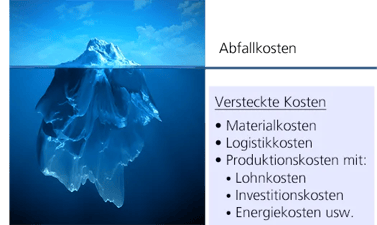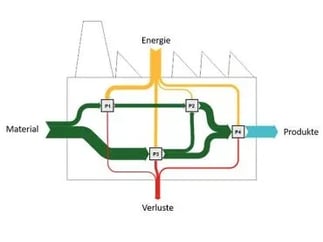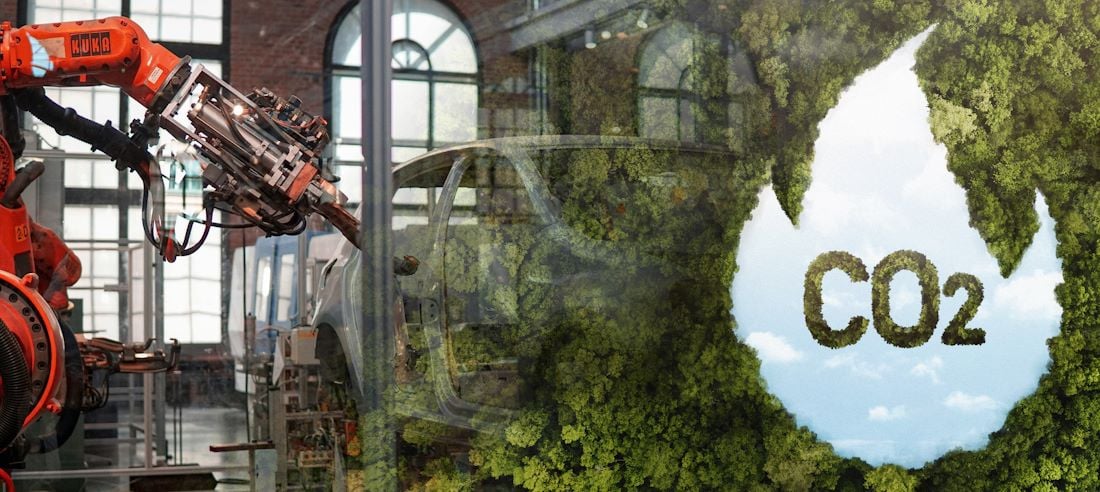Wie machen wir die Hamburger Industrie effizienter und nachhaltiger? Um dieser Frage zu begegnen, wurde das Projekt „MFCA-Hamburg“ als Kooperation von ifu Hamburg, der Umweltbehörde Hamburg und der Universität Hamburg ins Leben gerufen. Das Projekt wird 10 Hamburger Industrieunternehmen dabei unterstützen, eine Analyse der Materialflusskosten ihrer Produktionsprozesse zu entwickeln und individuelle Potenziale für eine effizientere und nachhaltigere Produktion zu identifizieren.
Auf dem Ressourceneffizienz-Treff 2018, einer von ifu Hamburg organisierten Veranstaltung, wurde das Projekt erstmals von Björn Dietrich (Behörde für Umwelt und Energie Hamburg) und Jan Hedemann (ifu Hamburg GmbH) vorgestellt. Über 80 Vertreter aus Industrie, Beratung und Forschung kamen auf dem Treff zusammen, um sich über Themen rund um Ressourceneffizienz auszutauschen und praktische Lösungsansätze zu präsentieren.
Als Leiter der Energieabteilung befasst sich Björn Dietrich primär mit der Förderung einer nachhaltigeren Energiepolitik und -wirtschaft in Hamburg, unter anderem durch die Steigerung der Ressourcen- und Materialeffizienz in Hamburger Unternehmen. Hier kommt Jan Hedemann, Geschäftsführer von ifu Hamburg, ins Spiel. Als Experten für Material- und Energieeffizienz unterstützen er und sein Team mithilfe von Software und Beratung Unternehmen auf dem Weg zu einer nachhaltigen Produktion.
Was ist MFCA?
 „Das Ziel der Materialflusskostenrechnung (engl. Abkürzung MFCA) ist es, eine neue Kostenperspektive hinzuzufügen, die die vollständigen Abfall- und Ausschusskosten zeigt“, sagte Jan Hedemann, Geschäftsführer der ifu Hamburg GmbH, auf dem Ressourceneffizienz-Treff. Bei der konventionellen Kostenberechnung werden Abfallkosten in den meisten Fällen nur auf Basis der Entsorgungskosten behandelt. Diese Perspektive erfasst jedoch in der Regel nur die Spitze des Müllkosten-Eisbergs. Der MFCA-Ansatz zielt hingegen darauf ab, versteckte Kosten, die bei der Abfallproduktion anfallen, wie Kosten für Rohmaterial, Transport und Produktion, darzustellen. Die Ermittlung dieser versteckten Abfallkosten mittels MFCA ist ein wichtiger Schritt zur Steigerung der Materialeffizienz und zur Verbesserung der Kosteneffizienz.
„Das Ziel der Materialflusskostenrechnung (engl. Abkürzung MFCA) ist es, eine neue Kostenperspektive hinzuzufügen, die die vollständigen Abfall- und Ausschusskosten zeigt“, sagte Jan Hedemann, Geschäftsführer der ifu Hamburg GmbH, auf dem Ressourceneffizienz-Treff. Bei der konventionellen Kostenberechnung werden Abfallkosten in den meisten Fällen nur auf Basis der Entsorgungskosten behandelt. Diese Perspektive erfasst jedoch in der Regel nur die Spitze des Müllkosten-Eisbergs. Der MFCA-Ansatz zielt hingegen darauf ab, versteckte Kosten, die bei der Abfallproduktion anfallen, wie Kosten für Rohmaterial, Transport und Produktion, darzustellen. Die Ermittlung dieser versteckten Abfallkosten mittels MFCA ist ein wichtiger Schritt zur Steigerung der Materialeffizienz und zur Verbesserung der Kosteneffizienz.
Was ist der Plan des Projektes MFCA-Hamburg?

In diesem Projekt werden 10 Hamburger Unternehmen dabei unterstützt, eine individuelle MFCA für ihre Produktion durchzuführen. Die Ergebnisse der MFCA werden Entscheidungsträgern in den Unternehmen dabei helfen, Potenziale zur Optimierung der Materialeffizienz zu erkennen. Darüber hinaus werden die beteiligten Unternehmen im Projekt MFCA-Hamburg die Klimafolgen des Verbrauchs in ihren Systemen identifizieren. Optimieransätze können dadurch hinsichtlich potenzieller Kosteneinsparungen sowie potenziellen Reduzierungen der Klimafolgen bewertet werden.
Das ifu-Team unterstützt die Unternehmen mit ihrer MFCA-Expertise und der Software Umberto Efficiency+ bei dieser Aufgabe. Darüber hinaus wird die Universität Hamburg dieses Projekt begleiten und eine engere Verbindung zwischen Wissenschaft und Wirtschaft schaffen. Zu diesem Zweck wurde eine neue Seminarreihe zum Thema „Applied Environmental Management“ an der Universität gestartet. Masterstudierende dieses Seminarsunterstützen die Unternehmen, indem Sie eine MFCA-Analyse im Rahmen ihrer Abschlussarbeit durchführen.
Dr. Björn Dietrich: „Wir wollen mit diesem Projekt konkrete Win-Win-Situationen in den Unternehmen schaffen und zeigen, dass Materialeffizienz nicht nur eine Entlastung der Umwelt bedeutet, sondern dass es Unternehmen auch besser für die Zukunft positioniert“. Durch das Erzählen von Erfolgsgeschichten der beteiligten Unternehmen wird das MFCA-Hamburg-Projekt Leuchttürme für mehr Ressourceneffizienz in der Hamburger Industrie schaffen!
Den vollständigen Vortrag sowie die Videoaufzeichnung finden Sie unter: https://www.ifu.com/events/ressourceneffizienz-treff/.





